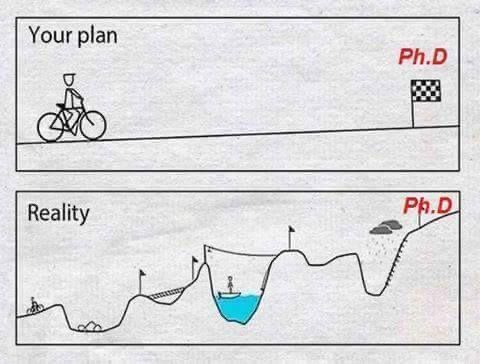
Navigating Uncertainties
One of the most constant companions in academic life is probably uncertainty. There are lengthy periods of “not knowing,” whether it’s while awaiting a manuscript decision, applying for grants, or progressing in a PhD. These times can seem depressing and never-ending. However, in retrospect, I’ve come to understand that these ambiguous times frequently present unanticipated growth opportunities and lessons.
The journey of the nine-month review
One of my manuscripts went through an unusually long review process with eight reviewers involved and four peer-reviewing rounds. From the start, I knew the process might take time, but I hadn’t imagined it would be that long. The reviewers’ comments were not only extensive but also, at times, contradictory. While some offered constructive suggestions, others pulled in completely different directions. It felt almost impossible to satisfy everyone at once.
However, it was an opportunity to practice of writing a response letter. Instead of simply following instructions, I had to carefully weigh each comment. For the suggestions that strengthened the paper, I made changes and acknowledged the reviewers’ inputs. For others that suggestions that were outside the scope, I had to push back, politely, but firmly. For example, one reviewer suggested that I cite a series of studies on a topic outside the scope of my manuscript. It took time to phrase responses that were professional and diplomatic while standing by the integrity of my work.
Eventually, after nine months, the paper was published. It felt like crossing a finish line after a marathon, not just because of the research itself, but because of the persistence required through the review process. This made me reflect more broadly on the peer review system itself. For readers interested in this topic, I recommend the blog “Peer review – a system that needs revision” which offers insightful perspectives on the structural issues that can arise in the process.
Later, at the PhD conference organized by DSA, I had the chance to meet a chief editor of a well-known publisher, who was one of the speakers. When I shared my story, he told me frankly that eight reviewers are too many, He even suggested that I could reach out to the journal’s editor to ask why so many reviewers had been assigned, since this not only prolongs the process but can also create conflicting feedback that slows the paper’s progress. By then, the paper was already published, but his advice gave me a valuable lesson for the future: next time, I will reach out to the editor rather than silently wait.
Looking back, that nine month journey was more than just a delay, it was a learning process in resilience, professionalism, and self-confidence. It showed me that uncertainty, while uncomfortable, can be an opportunity to grow into a stronger researcher. I see it as training in resilience and communication.
The “Ketchup Effect” of a PhD
My PhD work itself has another uncertain moment. I frequently thought that even though I was working long hours, analyzing data, writing sections, and refining methods, I am not getting any noticeable output. It is annoying to feel as though I am making no progress.
As my supervisor explained, “It’s like the ketchup effect—you shake the bottle and nothing comes out, and then suddenly everything pours out at once.”
That image stayed with me. Academic work rarely develops in a tidy, linear progress. Often, the results come after long periods of invisible work. And when they do, the sense of achievement is even greater because of the patience it required.

Finding growth in the unknown
What these experiences taught me is that uncertainty is not just about waiting; it is also about growing. It teaches patience, sharpens our ability to communicate, and reminds us that progress can be slow but cumulative.
In the end, uncertainty is not a vacuum. It is a hidden space where resilience, professionalism, and learning quietly take root until they suddenly become visible in our results, publications, or even the unexpected advice of a mentor we meet along the way.
Finally, I’d like to acknowledge that the idea for writing this blog came from Megha Sharma, my supervisor, who encouraged me to reflect on my peer review experience and share it with others.

0 comments